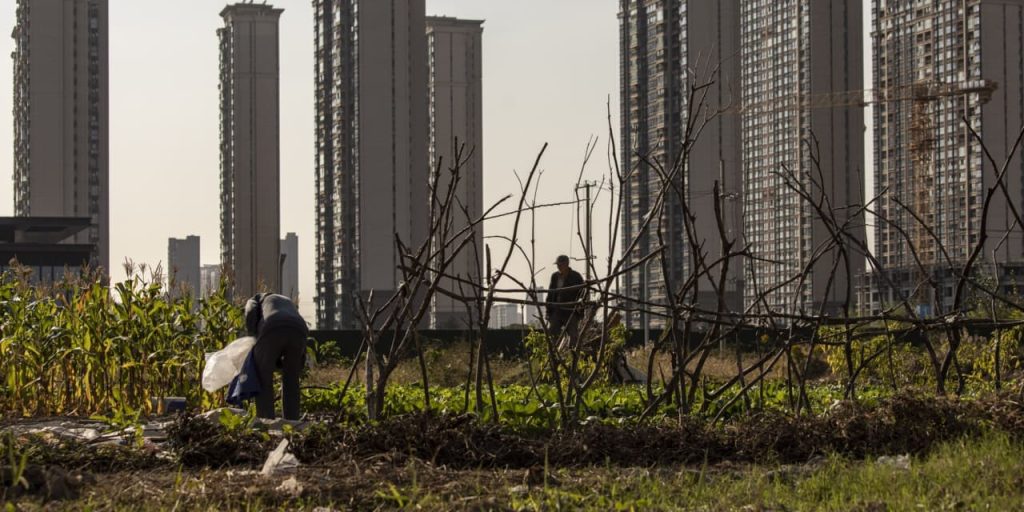Residential buildings under construction at China Evergrande Group’s development in Suzhou, Jiangsu province, China, in 2023.
Bloomberg
China’s now four-year real-estate crisis continues to rile investors who haven’t been paid, and buyers whose homes were never completely finished.
The problems appear to be getting worse, and observers are wondering how much of the damage will hit the country’s economy. The property sector produces about a quarter of China’s annual economic growth, and it comprises roughly 70% of household wealth, as citizens have long thought of it as the safest place for their savings.
The problems are leading to losses for domestic and overseas investors, to a wave of layoffs from distressed firms. But one problem that’s harder to gauge is the degree of discontent wrought by apartments and houses left unfinished by indebted developers. Nomura analysts estimated that at the end of 2022, there were about 20 million such units.
Freedom House’s China Dissent Monitor project tallied 1,777 demonstrations linked to the property sector between June 2022 and October 2023, the majority of which were related to unfinished units.
Barron’s spoke with several citizens affected by the crisis, and reviewed a broad range of online comments, which revealed widespread anger.
“I’m lucky that I got my apartment right after investors came in thinking they could rescue
Evergrande,
” said Li Yun, a housewife in Beijing. “But for later customers that I’ve heard about, they encountered problems because the government didn’t step in, and Evergrande fell apart.”
China Evergrande
is the country’s most heavily indebted real estate developer and was ordered to undergo liquidation by a Hong Kong court last week.
Country Garden Holdings
is China’s largest private property developer and reported its first default on a dollar bond in October and has been selling off assets at lightning speed since. Neither Country Garden nor Evergrande responded to multiple requests for comment.
Workers are among the victims as well, a problem that has persisted for years. A contractor from Chengdu, He Shui, 49, said that “in recent years, it’s become harder for me to get the promised amount for both personal and commercial property projects. And the lawyer fees to seek compensation are too high to make it worth pursuing litigation.”
Online venting reveals a slew of people who have little options after paying for units that were never completed. Chinese websites are heavily censored, but many comments slip through or can be seen before China’s online “sanitizers” delete posts.
A user going by the name Momo posted on China’s hottest new social site, Little Red Book, that her Country Garden unit’s completion date came and went, so she went to the local government housing bureau to complain. A Country Garden representative told her they would complete her unit in three months.
She eventually updated her situation under her original post. “There’s no sign of construction progress. So all we can do is wait.”
Comments similar to Momo’s can be found across other social media sites like Douban, and Douyin, China’s version of TikTok, among others.
In reference to Country Garden, JeffGH commented on an article on financial news site Caixin: “The situation is big loss in credit, confidence, and trust. The consequences are unlimited.”
A user named Madam Ren wrote on Little Red Book: “I accompanied my husband to [our employer] Country Garden for a meeting today. Many people must have heard about the recent severe thunderstorms. I am also one of the victims and almost lost my salary. My husband is also working hard and cannot get any projects.”
In Chinese social media verbiage, the term “thunderstorm” is now commonly used to refer to a property firm’s situation that has encountered distress.
She added: “Do you have the same situation as malicious arrears of wages? So many villas in Country Garden are empty or unfinished. I don’t know if anyone will buy them. It’s a waste of land and cost.”
Write to [email protected]
Read the full article here
